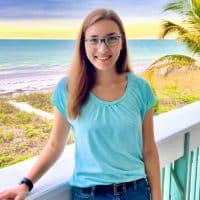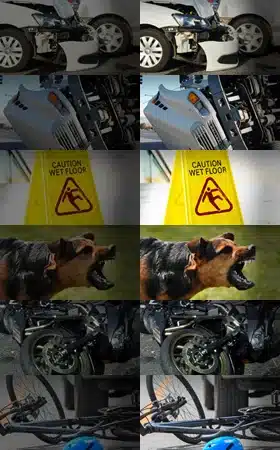Scholarship Winner 2022

Sophia’s essay was selected from dozens of very fine essays submitted by other applicants. We were impressed by the quality of Sophia’s essay and inspired by her personal story of learning to cope with a significant injury. Sophia will be a freshman at the University of Michigan this fall, which she describes as her “dream school.” We wish her success in her academic pursuits and in her on-going work of learning to live with her injuries.
Sophia’s Essay
My world changed in the summer after ninth grade, when a traumatic brain injury from a car accident took away my capacity to perform the activities that defined my normal life. I had taken for granted my brain’s ability to keep me balanced, to help me walk and run, and even to read a book. Instead of starting tenth grade with my peers, I had to dedicate an entire year to my rehabilitation, unable to attend school and spending weeks away from my home and friends.
How do you relearn fundamental skills you never thought you would lose? My answer: one day at a time.
My recovery was an exercise in patience, perseverance, and embracing uncertainty. Healing is not a linear process, and every day I had to make the choice to give my best effort, even if today’s best was less than yesterday’s. I’ve never been one to shrink from a challenge, but during that year I learned a special type of perseverance: to push on even when the path is uncertain.
Every step of that path presented a new reality to which I had to adapt. With my physical abilities so limited, I learned to pass my time in new ways. I always loved reading books, but soon I became a connoisseur of audiobooks and audio theatre. Through audiobooks, I discovered new beloved stories and fell in love again with old favorites. I listened to many hours of BBC radio productions of Shakespeare’s plays. My favorite was a production of Hamlet with Michael Sheen playing the titular role; even now, I can still recite from memory several of Hamlet’s monologues in their entirety. My injury turned my life upside down, but being forced to adapt to the circumstances allowed me to stretch my mind and discover new interests.
My life is still very much impacted by the consequences of that TBI. Since then, I have suffered from Postural Orthostatic Tachycardia Syndrome, an autonomic nervous system disorder that is not readily visible to others, but affects my mobility, my physical stamina, and many other aspects of my daily life. My disability has made me more fully aware of the diversity of needs within the disabled community, and I have gained a deeper understanding of what accessibility really means. Since my accident, I have always had to consider whether the space I want to enter will support my needs. Will there be enough seating so I can rest when I need to? Will there be ramps or elevators so I can avoid climbing stairs? Some accommodations can be as simple as putting a bench in a department store or providing subtitles on a TV in a public space, yet they can quite literally make a disabled person’s world bigger. My new awareness allows me to be an active voice against ableism, and I hope to contribute to the important work of advocating for disabled students and members of the community when I start college at the University of Michigan.

